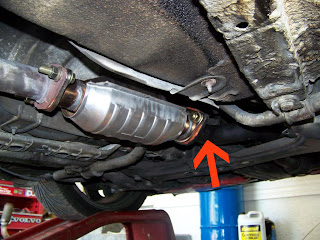

Solution: replacing your catalytic converter is a straightforward procedure.
TOYOTA HIGHLANDER UNDER HOOD RATTLING NOISE BUMPY ROAD CODE
a bad converter can also trigger your check-engine light to come on and create a trouble code in the engine computer. the converter doesn’t fail by itself something has to cause it to fail, and that should be identified before it is replaced. in extreme cases, this can sound like a box of rocks being shaken. the converter can be damaged by thermal shock or an impact, which can cause part of its internal structure to break off and cause a rattle. it converts the toxic gases and pollutants in your exhaust gas into less dangerous substances. The catalytic converter is the part of your exhaust system that controls emissions. don’t delay if you suspect the exhaust system is the problem - the consequences could be deadly if exhaust leaks into the interior while you are driving. it’s also possible you might need to replace a section of rusted-out exhaust pipe or even the muffler. the fix could be as easy as tightening a loose clamp or replacing a damaged rubber hanger. Solution: have your exhaust system checked by your mechanic or a muffler shop. if the exhaust system is loose, it can also bang against the underside of your vehicle when you hit a bump. the exhaust noise may also be louder than normal, and appear to be coming from under the car instead of the tailpipe at the rear. this can cause a rattling noise under the vehicle. over time, these components can wear and the joints holding them together can loosen. it’s made up of several components including the catalytic converter, the muffler and sections of exhaust pipe.

Your exhaust system runs from your engine to the rear of your vehicle. Rattling noises that come from the bottom of your vehicle may be noticeable upon starting, while driving at certain speeds, when you hit a bump in the road, or even all the time. to simplify this process, we’ve broken down the possible locations to four main areas of your vehicle: this will help you or your mechanic find the source of the noise. The first step toward dealing with a rattling noise in your car is to identify where it’s coming from. and some can be the last-minute warning of an imminent mechanical failure. some are symptoms of future problems that can be headed off with some immediate attention.


Some rattles are minor and easily fixable. but whatever the source, it should be tracked down and identified before it gets worse. rattles may happen only upon acceleration, deceleration, going over bumps, rounding a corner, or during some other specific set of circumstances. they may occur only when the engine is cold, or when it’s fully warmed up. you may hear them when you start your car, when you drive it or when you apply the brakes. Rattling noises can be caused by a variety of issues. figuring this out will help your mechanic pin down the repair - assuming it’s not a simple fix you can take care of. Is your car going to break down? does it need a repair - maybe an expensive one? let’s slow down and take a look at what might be causing the noise. your mind starts racing, trying to figure out what the noise is and how bad a problem it will be. you start your car and hear a rattling noise you’ve never heard before.


 0 kommentar(er)
0 kommentar(er)
